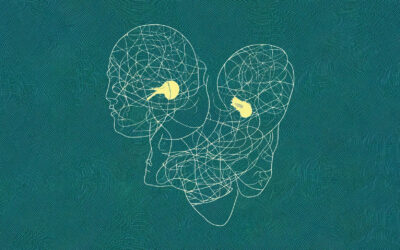I am losing faith in the universities.
Universities should be centres for cultivating thought, fostering debate, and honing communication skills. These are what specialised jobs require – the ability to think, speak, and write effectively. If someone lacks these abilities, then the value of a degree comes into question. It becomes just a piece of paper. Employers are realising that despite an individual’s academic credentials, they often lack the essential traits needed for responsible roles, they still need further training. I’ve witnessed it repeatedly – fresh graduates, armed with shiny new degrees, struggling to express their thoughts coherently. When I engage them in discussions about their field of study and ask for their personal viewpoints, their responses are often underwhelming. It’s important to note that this trend isn’t solely the fault of universities. However, it does highlight that attending a university does not automatically guarantee that someone will develop the skills to think critically, form clear, strong arguments and know how to act effectively.
Now, I hope I am not misunderstood, I am not disregarding university education. My point is to make you aware that you might need to extract more value from it than what is presented on the surface. And, if you find yourself veering away from the academic path, remember, it shouldn’t be an excuse to take the path of least resistance. Instead, strive for a pursuit that is equally, if not more, challenging. Cultivate a skill set that’s in demand, that people need and want, and aim to acquire it by your mid-20s. If you are not interested in University, ask yourself if you’re shying away from academic study because it’s genuinely not suited to you, or is it simply because you’re seeking an easy way out? Don’t succumb to the temptation to opt for the path of least resistance. So, assuming university is not your chosen pathway, what next? Pursue creative endeavours, join the workforce, undertake a traineeship or experiment with shorter study courses. Ultimately, the onus is on you to carve out your unique path. You have options – explore them and take responsibility for your future.
Now, there is an even more pressing issue concerning universities, particularly one that should sound alarm bells within the church community. The fact is, most Christians abandon their faith during their university years. This phenomenon, a silent exodus, is undeniably evident. This transition period, marked by personal autonomy, often leads to neglecting and re-evaluating previously held beliefs. The diversity of ideologies at universities and the increasing secularisation of society can create an environment where faith is easily discarded.
Will you keep your faith in college?
Odds are you won’t.
In his book “Faith for Exiles,” David Kinnaman, President of Barna Research, references survey data revealing that 64% of students who professed to be Christians in high school, will either abandon or significantly reduce their faith after entering college. Furthermore, Barna’s projections suggest that 80% of individuals raised within the church will become “disengaged” from their faith by the age of 29, typically not returning to their faith even post-graduation.
Here in Australia, Christian researcher Phillip Hughes reported in 2013 that 50,000 young Australians were abandoning faith every year. This is a huge toll; as the church is endeavouring to usher a new generation into faith, it is leaking out the back door from those already inside.
Shocked by these figures? I can’t say I am. Will you be counted among the 80%? Will you let go of your faith when confronted by a circle of peers unfamiliar with God? It’s common for people to believe their early faith will sustain them throughout their lives. King Joash of the Bible likely held the same belief.
Becoming king at a tender age of 7 (2 Chronicles 24:1), Joash “did what was right in the eyes of the Lord all the days of Jehoiada the priest” (2 Chronicles 24:2). Under the guidance of his mentor and trusted advisor, Jehoiada, Joash adhered to God’s laws and led others to do the same. His influence even sparked joyous offerings to God: “All the princes and all the people rejoiced and brought their tax and dropped it into the chest until they had finished” (2 Chronicles 24:10). Joash’s faith appeared genuine and profound.
However, upon Jehoiada’s death, Joash’s faith took a dramatic turn. He started relying on his peers for advice. When the princes of Judah came to visit after Jehoiada’s demise, Joash was easily swayed by their words. In the wake of their flattering “homage to the king” (2 Chronicles 24:17), Joash abandoned God’s house to serve idols. His so-called “friends,” appearing open-minded and culturally savvy, possibly persuaded him that Jehoiada’s teachings were too stringent and outmoded. As a result, Joash undid all his previous good deeds and even went as far as to kill Jehoiada’s son, Zechariah, when challenged.
Such a dramatic transformation may seem surprising, but it sheds light on Joash’s faith, which was anchored in Jehoiada, not God. His faith was borrowed, not owned, which made him susceptible to the influence of the faithless. His abandonment of God led to divine judgement, and he was eventually murdered by his own servants. Joash’s story serves as a reminder that the longevity of our Christian journey is less about how we start but more about how we finish.
Many of us, no doubt, started with a fervour. We believed that if we were rooted in the right values and engaged with the church from a young age, we would remain steadfast in our faith. I once held that belief. In my late teens I was consumed by my faith, but as I delved deeper into my career, my focus diluted, and my time with God became infrequent and hasty. The less time I spent meditating on the scriptures, the less I yearned to know God. My faith began to fade, and activities like reading the Bible and going to church felt more like obligations rather than soul-nourishing experiences.
The challenges of maintaining faith in a university setting
If you’re on the brink of starting college or university, it’s crucial to recognise that you’re stepping into a phase of vulnerability. Maintaining your faith in such an environment can be quite challenging, and there are several reasons for this.
Foremost among them is the daunting reality that you, as an 18-year-old, are suddenly expected to navigate the boundless freedoms that university life presents, typically without guidance from a mentoring figure. The reality is, today, university is a pleasure island – a haven for young men and women to act however they please without recrimination or accountability. The trend of young adults renouncing their faith can frequently be attributed to the liberal social atmosphere of universities and an emerging desire to “live wild”, to experience unrestricted living. This transient phase of unbridled freedom and evasion of accountability leads to the temptation to indulgence, and with it, the opportunity to dabble in excessive alcohol, drugs and meaningless, self-focused sex – the pleasure without any serious commitment or meaningful depth. It’s easier to follow rules when you’re under the watchful eyes of friends, family, and youth leaders. But once you move away from home, the game changes. You’re now amidst dorm mates who likely have no faith at all. Now you have stepped into this new secular environment there are few, if any, external incentives encouraging the Christian to be virtuous. Just the opposite. Almost every voice surrounding you entices you to move away from the virtues and values you were brought up with.
Another concern in university life is the excess of idle time, particularly in the early years or in less demanding courses. It is said that idle hands are the devil’s workshop. The dangers of excessive idle time during the university years resonates with the biblical story of King David and Bathsheba. As King, David was expected to lead his armies into battle, but on this occasion he chose to neglect his responsibility to stay behind, a decision of idleness that set the stage for his encounter with Bathsheba. In the Second Book of Samuel from the Bible, King David, during a period where I suspect he was primarily relaxing at home, partaking in food and drink, got distracted and caught sight of Bathsheba bathing. David, though married, was so attracted to her that he called for her and committed adultery. This set in motion a series of ill-fated events: the killing of Bathsheba’s husband, Uriah, and a cascade of consequences that would go on to affect David’s rule and his personal life deeply.
Students, much like King David, are expected to engage in studies and activities that foster personal growth and prepare them for future careers. Idleness is a deviation from these responsibilities and productive activities. Everyone needs downtime, but too much of it paves the way for distractions and, ultimately, poor decisions. When you allow yourself into a situation or environment of idleness, you are prone to act in ways negligent of the virtues and values you once believed so strongly. You have become lethargic, and in your lethargy, distracted. Much like David, you become unaware of your vulnerabilities and shortcomings, leading to a loss of moral-compass. Recognising the potential dangers of excessive idle time and its propensity to breed distraction is crucial in this phase of life.
Why we lack the tools for faith in university
Furthermore, it’s essential to remember that, particularly in the West, the academic environment of universities is often less than welcoming towards the religious. It tends to reflect a modern Western secular fundamentalism, characterised by an uncritical acceptance of unrestrained freedom of choice, and an entitlement to perpetual hedonism. The new secular orthodoxy upholds the belief that truth is solely accessible through science, while religion is reduced to mere subjectivity, based purely on emotions.
One of the most deceptive notions fed to young adults is the belief that faith and reason are inherently contradictory. This false dichotomy suggests that one must choose between embracing faith or endorsing reason, implying an opposition that doesn’t truly exist. Consequently, campus life can foster an intellectual critique of the Christian faith as being unsophisticated, outdated, and immature. This mindset is partly inherited from the wave of New Atheists and, tragically, sometimes also perpetuated by an aversion to doubt and difficult questions in Christian circles. Simultaneously, Christian faith faces intense scrutiny and is accused of contributing to the oppression of minority groups, tarnished further by instances of sexual scandals, including the abhorrent abuse of children.
Perhaps young king Joash’s weakness was that he was never taught to think for himself as a child king. He learned to subject his rulership to his peers without setting his own course, so when his peer group changed from a godly advisor to godless friends, he’d developed no spine of self-determination, no critical thinking, no confidence to disagree or live according to his own principles. Too often, church culture can train young people the way Jehoiada trained Joash: “this is the right answer, this is wrong, so do as I say”. Churches and Christian parents must train young people to courageously tackle challenging questions in a safe environment before they’re dropped into an environment that’s typically hostile to faith.
John Lennox, a Professor of Mathematics at Oxford University and Christian speaker and author, recounts how his parents helped him prepare:
“C.S. Lewis had begun to influence me long before I reached Cambridge in 1962. My father gave me a copy of ‘Mere Christianity,’ and it was like a fire hose of logical thinking. It opened my mind, and I devoured every word. What was most important to me was: I have no idea what it’s like to be an adult and not a believer in God, and I needed someone to guide me into what that was like. So C.S. Lewis, who was an atheist until his 30s, provided that guide and helped me understand the nuts and bolts of atheism. I didn’t know that one day I would confront the leading atheists of the day like Richard Dawkins. All of this was enormously helpful because what got really into my heart at an early stage was that Christianity was true. I’d seen it really lived in the lives of my parents. They loved me enough not to force it down my throat and they encouraged me to think, so I was persuaded inwardly of the truths of Christianity. So when I left Ireland with its religions, bigotry and factions for Cambridge, I didn’t lose my faith in God, unlike many contemporaries who never truly believed for themselves. My parents, Lewis, and others played a vital role in making me think as deeply about scripture as I do about mathematics.”
Unfortunately, many young Christians would appear to lack the skills and perhaps the theology to resist being drawn into the prevailing sub-culture. They may not have been prepared to critique culture and lifestyle from a Christian standpoint and may indeed have little more than a Sunday school understanding of faith. Many young Christians are unfamiliar with apologetics and the ability to defend and argue for their faith. In the absence of this understanding, they lack credible evidence to confirm the truth of Christianity, leaving them without a sturdy reason to remain steadfast when their fragile faith is attacked by their secular peers. Consequently, they drift aimlessly, like many others, into the intellectual vacuum of secularism.
Prepare yourself or risk drifting away
I’ve seen it so many times. Reflecting on my teenage years when I first embraced Christianity, it’s somewhat disheartening to realise that only a fraction of my circle of Christian friends from those days remain steadfast in their faith. Some of this was expected, as those who “lose their faith” often lacked strong convictions from the start. They led fragmented lives, projecting a Christian facade at church while their actions elsewhere were contradictory. Such a disintegrated life is not sustainable in the long term. In many cases, those who jettison Christianity in college have already begun to fade in high school but only went public when they entered a secular environment. Simply put, they were lost early while they were still in church.
But there were others, friends who were once deeply passionate about their faith, whose complete reversal surprised me. As time passed and the complexities of life unfolded, they gradually distanced themselves from Christianity. Their reasons varied, with some citing the church’s actions or negative experiences with other believers as their rationale for distancing themselves from the faith. I don’t buy that as the real reason. Beneath these grievances, the underlying reality was simply a dwindling interest in pursuing a relationship with God. Many of them ventured into university life, and subtly, almost imperceptibly, they began to assimilate into the secular lifestyle and culture that surrounded them. This transition was so gradual that it often went unnoticed until a couple of years later you realise they are an entirely different person. They might have once identified as Christians and participated in the practices of faith, but over time, their commitment waned and they seemed to wither spiritually. I still pray for them, remembering that we believe in a God who seeks the lost, who is patient and loving, and desires that all should come to know Him.
It’s vital to acknowledge, and I say this from personal experience, that you should not underestimate your capacity for spiritual drift. Don’t fool yourself into thinking that you’re immune from it or that, if it happens, you’ll easily find your way back later in life. We are all susceptible to gradually straying from God. Even if you’ve lived an outwardly Christian life, like King Joash, it’s alarmingly easy to start mirroring the behaviour of those around us.
So, you’re either about to embark on your university journey, or perhaps you’ve already started it, what do you do to prepare your faith?
First, ask yourself: is Jesus your most treasured possession or just an echo of someone else’s faith? Time waits for no one; spiritual maturity beckons you. Hold your faith firm. Be resilient. Commit with all your heart. Deepen your faith by diving into the realm of apologetics, which is the defence and logical reasoning behind Christianity. You need to build a sturdy Christian worldview to tackle post-modernism, pluralism and secularism. But here’s the key: don’t do this by just putting your fingers in your ears and praying loudly. Test your faith, question it, and make it your own through the intellectual rigour that apologetics offers. Equip yourself to stand your ground in debates, discussions, and personal introspection. Understand the ‘why’ behind your beliefs. Reason is the ally of Christian faith, not its enemy.
So, can your faith conquer college trials? Yes, but it needs unwavering devotion to God, braving against the flow. Ignite a lasting passion for God. Seek His joy, His guidance. Request His anchor for your wandering heart, and do it now, every day. It’s not about rituals or rules, it’s about immersing yourself in your faith. The heart of a Christian life beats in the rhythm of reading the Bible and praying. Don’t just skim; dive into the words. Your faith is muscle. Without exercise, it crumbles. If you’re new to the Bible, begin by just reading the New Testament each day, you may even want to watch videos from the Bible Project to assist in your interpretation and understanding.
But it’s not a solo journey, but’s about community. Plunge into a church. Make friends who share your faith. Genuine Christian companionship in college buffers against the pressure to fit in. The people around you have an uncanny influence. You may have heard that “you are the average of the five people you spend the most time with” It’s true, you often are. King Joash is a vivid example of how easy it is to abandon your faith when surrounded by the wrong people. As Christians in university, remember you hold the power to influence, to set an example, and to lead. Don’t simply tread the well-worn, easy path downhill that many choose to follow.



